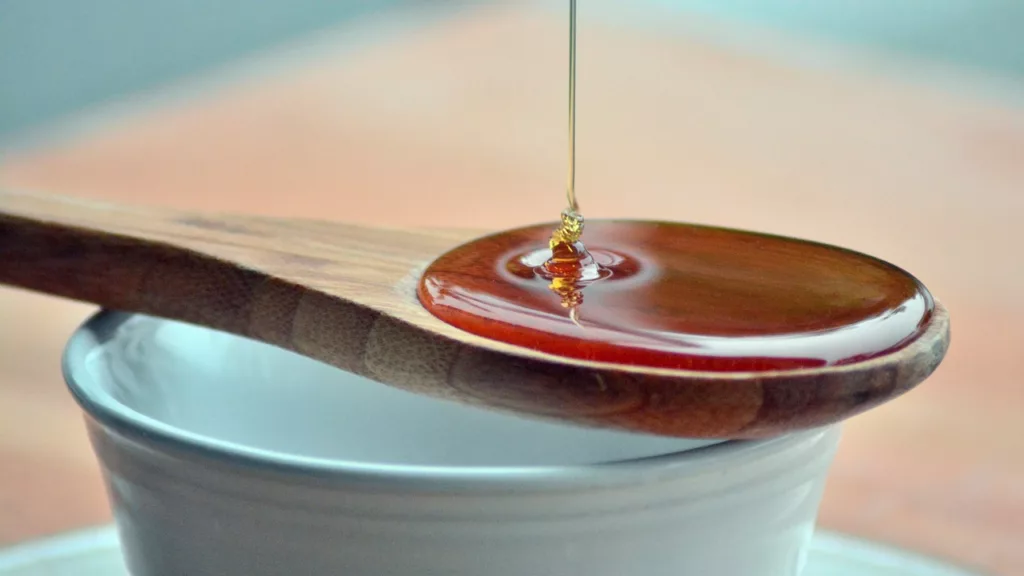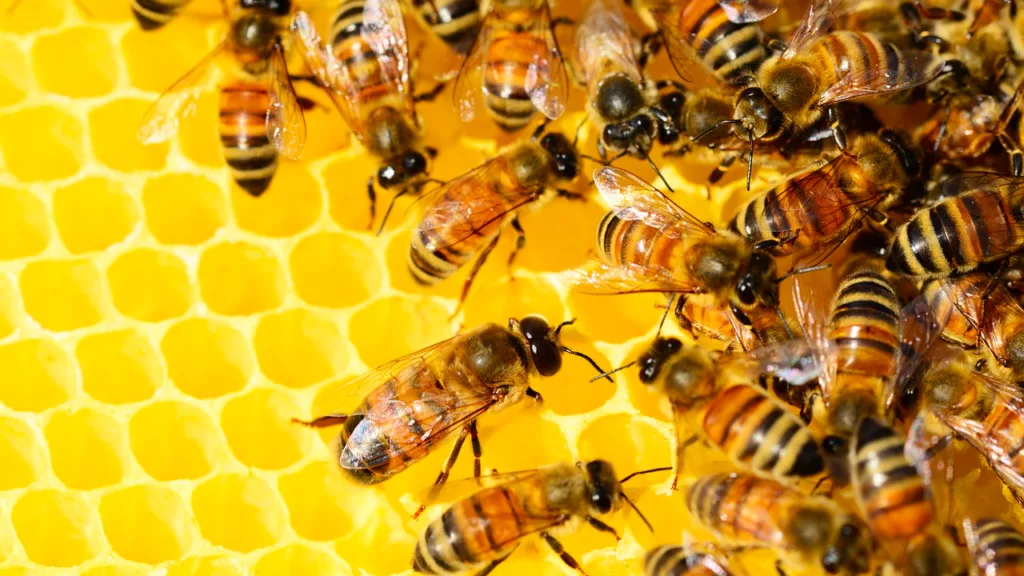Can vegans eat honey? Honey, a sweet nectar crafted by bees over centuries, poses a dilemma for those following a vegan lifestyle. The debate revolves around the ethical considerations of honey consumption within the vegan community. Let’s delve into the vegan perspective, exploring arguments both for and against honey consumption.
Firstly, understanding veganism is essential. Vegans avoid all animal products, encompassing food, clothing, and other purposes. This extends to meat, dairy, eggs, and any other ingredients derived from animals. Thus, the crux of the matter lies in determining whether honey qualifies as an animal product.
The ethical debate: Is honey vegan-friendly
In the vegan community, opinions differ on whether honey is truly vegan. Advocates argue for its inclusion, citing its natural origin from bees. However, opposing views highlight concerns about exploitation in the honey collection process, akin to taking honey without leaving enough for the bees.
Honey production may involve practices conflicting with vegan ethics, such as pesticide use and the destruction of wild bee habitats. Vegans face the crucial task of weighing these ethical considerations when deciding to include honey in their diet.
The environmental impact of honey production
Honey production carries notable environmental consequences. The utilization of pesticides and chemicals in this process poses threats to bees, pollinators, and the ecosystem. Destruction of wild bee habitats for commercial honey production can lead to declining bee populations, affecting the environment due to their crucial role in pollination, especially for fruits and vegetables.
Moreover, the commercial honey industry often involves long-distance transportation of bees and hives, stressing the bees and contributing to disease spread. This, in turn, negatively impacts both bee well-being and local ecosystems. In making decisions about including honey in your diet, it’s crucial to weigh the environmental impact of honey production.

The ethical implications of consuming honey
Many vegans refrain from consuming honey due to ethical concerns about how bees are treated and the exploitation of their labor. Beekeeping practices often involve confining bees and manipulating colonies to maximize honey production. Furthermore, many commercial beekeeping methods include the use of pesticides and harmful chemicals, posing risks to both bees and the environment.
Alternatives to honey
Luckily, there are many delicious and nutritious alternatives to honey that can be used in cooking and baking. Agave nectar, maple syrup, and coconut nectar are just a few examples of sweeteners that can be used in place of honey. These sweeteners are not only vegan, but they are also often more sustainable and better for the environment. Additionally, there are many recipes that use natural sweeteners like fruits and dates.
Other honey alternatives
When seeking honey alternatives, numerous delicious options exist. Agave nectar, derived from the agave plant sap, serves as a honey-like sweetener for desserts. Maple syrup, with its distinctive flavor, complements pancakes, waffles, and baked goods.
Date syrup, made from dates, offers a natural, caramel-like sweetness for various dishes like dressings and desserts. Coconut nectar, derived from coconut palm sap, provides a subtle coconut flavor, ideal for sweetening morning oatmeal or yogurt.
Vegan bakers can explore alternatives for honey as a binding agent. Applesauce, mashed bananas, and silken tofu can all substitute effectively. With a bit of experimentation, you’ll discover the perfect honey alternative to match your taste.
In conclusion, a variety of delicious and nutritious options cater to vegans avoiding honey. Whether you need a sweetener, binding agent, or a tasty addition to meals, there’s a suitable honey alternative. Enjoy your vegan lifestyle without compromising on taste or nutrition.
Honey in processed foods
Avoiding honey in home-cooked meals is straightforward, but steering clear of it in processed foods can pose challenges. Various processed items like bread, crackers, and cereal often include honey in their ingredients. It’s crucial to diligently examine ingredient lists and explore alternative options while shopping for processed foods.
Conclusion: Can Vegans Eat Honey
In summary, can vegans include honey in their diet? The decision is personal, with some avoiding it while others deem it morally acceptable. Consider the ethical aspects and align your choice with values. Opt for honey from small-scale, sustainable methods to avoid bee exploitation.





This topic is always such a debate but nice article thank you. I love the flavor of honey in a lot of recipes and agave is just not quite as nice I feel.
Thanks for reading Elizabeth!